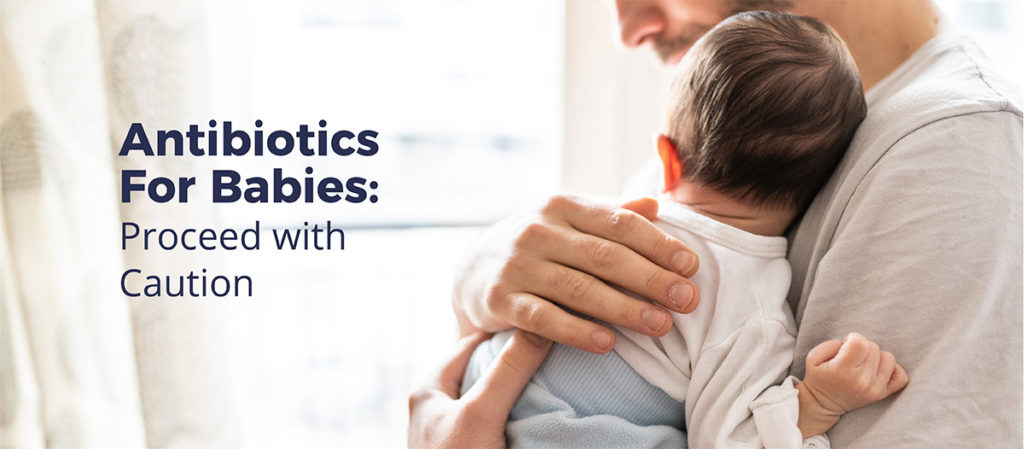Antibiotics For Babies: Proceed With Caution
Early Antibiotics May Harm Your Baby’s Gut
When we discuss the overuse of antibiotics, it’s usually focused on adults who rely on them too often to treat health problems that would be resolved in time on their own.
This over-reliance can often mean these one-time “miracle drugs” may not work when they’re truly necessary, and create openings for more health problems down the road.
Few of us expect babies to be exposed to antibiotics so early, but we recently learned how often they’re prescribed — even once — for little ones under age 2 may increase the possibility of food allergies, obesity and many more health challenges.
What’s more, little good happens when infants are treated with antibiotics during their first week of life, according to a recent report in Nature Communications.
Too Much Exposure To Antibiotics
Experts estimate as many as 10 percent of all newborns are prescribed an antibiotic and that doctors justify them based on “suspected” infections.
This overprescribing is justified by some doctors to prevent a problem they suspect could happen and get serious in a hurry, although a small number of babies ultimately experience an infection.
With those facts in mind, a team of researchers from the UK and The Netherlands conducted a clinical trial involving 227 babies to observe how antibiotics would affect their tiny microbiomes.
Nearly 150 babies with “suspected” sepsis were treated by one of three antibiotics, with the remainder were part of a control group who received no antibiotics. All babies had fecal or rectal samples taken before and after treatments at 1, 4 and 12 months of age.
Among the infants who were prescribed an antibiotic, the harmful effects were obvious.
- Babies experienced significant decreases in various species of Bifidobacterium, microbes that help them better digest breast milk and support their good gut health.
- Scientists observed a change in more than 250 strains of bacteria in the guts of babies, flipping the balance in favor of more unhealthy harmful microbes.
- Those microbial changes lasted at least 12 months and did not improve with breastfeeding.
- Among the antibiotics prescribed, the combination of penicillin and gentamicin was the least detrimental on a newborn’s microbiome.
The start of antibiotic treatment, not its duration, appears to be trigger for gut health problems, says researcher Dr. Marlies van Houten, a pediatrician at the Spaarne Hospital in The Netherlands.
A Probiotic In Your Baby’s Future?
The evidence is clear that antibiotics are prescribed way too often, and breastfeeding may not restore the developing microbiomes of infants, so what are your options?
Should an antibiotic be necessary, we recommend talking to your pediatrician about giving your baby a probiotic with multiple species of beneficial bacteria that can boost the critical balance of bugs in their tiny microbiomes.
If you’re looking for a probiotic with the right made for your baby, consider EndoMune Jr. Powder formulated with 10 billion CFUs of beneficial bacteria from the Lactobacillus and Bifidobacterium families plus a prebiotic that feeds their developing microbiome.
Just a half-teaspoon of EndoMune Jr. sprinkled in your baby’s formula or added to soft foods (when your baby is ready for them) once a day can make a gut-healthy difference!
Resources
Antibiotics For Babies: Proceed With Caution Read More »

